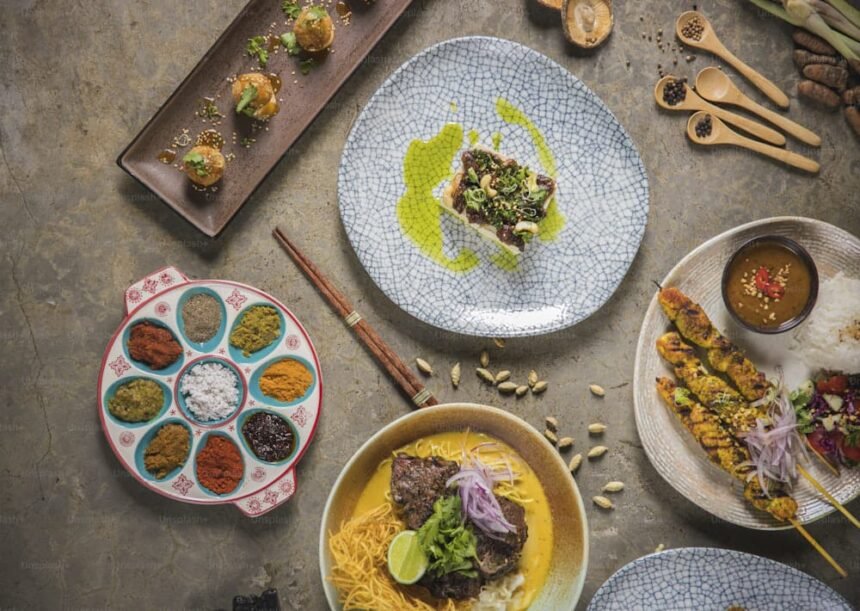In kitchens around the world, there’s a delightful trend taking root: making homemade seasonings. This practice goes beyond just mixing spices; it’s about reclaiming and personalizing the culinary process. Home cooks are increasingly turning away from store-bought packets to embrace the craft of creating their own unique spice blends.
Whether it’s concocting the perfect taco seasoning, experimenting with aromatic herbs for a pasta dish, or crafting a special rub for grilling, the benefits of this approach are as varied as the flavors themselves. Not only does this allow for a tailored taste that matches individual preferences, but it also promotes a healthier, more cost-effective, and environmentally conscious way of cooking.
This article delves into the top ten reasons why making your own seasonings can elevate your cooking experience, enhance your health, and bring a burst of creativity to your kitchen. Join us as we explore how simple it is to start and the profound impact it can have on your meals and well-being.
1. Elevate Your Cooking with Homemade Seasonings
Creating your own seasoning blends at home is a wonderful way to bring out the best in your cooking, especially when it comes to staples like taco meat. Inspired by sources like Julie’s Eats & Treats, starting with the basics of how to make taco meat allows you to customize your spice levels with homemade taco seasoning, adjusting salt, pepper, cumin, and chili powder to perfectly suit your palate.
This not only enhances the natural flavors of the meat but also lets you sidestep the fillers and anti-caking agents often found in pre-packaged mixes. Whether you’re hosting a taco night or simply putting together a quick dinner, the personalized touch of homemade seasoning can make a significant difference in both the taste and healthfulness of your meals.
2. Cost-Effectiveness
Using homemade seasonings is remarkably more cost-effective than purchasing pre-packaged mixes. When you buy spices in bulk, the price per serving can be significantly lower. Store-bought seasoning mixes often come with a high markup for branding, packaging, and convenience. By selecting your own spices and creating blends at home, you not only save money but also get more seasoning for your dollar. This approach is especially beneficial for families who cook often or like to experiment with different flavors without straining their budget.
3. Avoiding Additives and Preservatives
Store-bought seasonings frequently contain more than just herbs and spices. Many include preservatives, added sugars, and excessive salt, which can be a concern for anyone watching their dietary intake. By making your seasonings at home, you ensure that your dishes contain only natural ingredients, which is better for your health. This practice can be particularly important for those with allergies or sensitivities to certain additives.
4. Tailored to Your Taste
One of the greatest advantages of making your own seasoning is the ability to tailor it to your specific taste preferences. If you prefer your food with a little extra kick, you can increase the heat level by adding more chili peppers or pepper flakes. Conversely, if cooking for children or those with milder palates, you can easily adjust the spices to be less intense. This customization is not typically available with pre-made mixes and allows you to create dishes that are perfectly suited to your family’s tastes.
5. Longer Shelf Life of Bulk Spices
Purchasing spices in bulk not only saves money but also extends the shelf life of these ingredients. Whole spices maintain their flavor and potency much longer than their ground counterparts, which tend to lose their pungency more quickly. By grinding spices as needed, you can ensure that your seasonings are always fresh and full of flavor. This practice also prevents waste, as you can grind only the amount required for a particular recipe, keeping the rest in their whole form, preserved, and ready for your next culinary adventure.
6. Enhances Creativity in the Kitchen
Creating your own seasonings opens up a world of culinary creativity. Experimenting with different spices and herbs allows you to develop unique flavors that can’t be found in store-bought bottles. Whether it’s a blend of Mediterranean herbs for a seafood dish or a special rub for a barbecue, the possibilities are endless. This creative process not only enhances the flavor of your food but also brings a personal touch to every meal.
7. Therapeutic Benefits of Making Your Own Seasonings
The act of making your own seasonings can be surprisingly therapeutic. The simple tasks of measuring, grinding, and mixing spices provide a hands-on way to relax and engage the senses. The aroma of fresh spices can be particularly calming, offering a form of aromatherapy. This mindful activity allows you to focus on the moment and enjoy the satisfaction of creating something from scratch. For many, the kitchen becomes a retreat where they can unwind and express themselves through the flavors they create.
8. Educational Opportunity
Preparing homemade seasonings also serves as an educational experience. It offers a chance to learn about the origins of various spices and their uses in different cultures. This can be particularly engaging for children, providing a fun and interactive way to teach them about geography, history, and science through cooking. As children learn how spices are grown, harvested, and used around the world, they gain a greater appreciation for the food on their table. Moreover, this education can spark curiosity and encourage a more adventurous eating style.
9. Increased Nutritional Value
Spices are not just about flavor; many come with significant health benefits. Fresh spices often contain higher levels of antioxidants, essential oils, and other nutrients than their processed counterparts. For instance, cinnamon can help regulate blood sugar levels. By using fresh, high-quality ingredients in your homemade seasonings, you enhance not only the taste of your dishes but also their nutritional value. This aspect is particularly important in a world where health consciousness is ever-increasing.
10. Better for the Environment
Choosing to make your own seasonings can also have a positive impact on the environment. Homemade blends require less packaging, reducing the amount of waste and plastic use. Furthermore, by buying spices in bulk, you can often source them from local or organic farms, supporting sustainable agriculture practices. This not only helps reduce your carbon footprint but also ensures that you are using the freshest, most environmentally friendly ingredients available.
Conclusion
The benefits of making your own seasonings are extensive and impactful. From enhancing the taste of your meals and boosting their nutritional value to fostering creativity and mindfulness in the kitchen, the advantages are profound. Additionally, this practice supports healthier eating habits, educates young cooks, and is kinder to our planet. Embracing the art of creating your own spice mixes not only transforms how you cook but also enriches how you live. I encourage everyone to try making their own seasonings. Start simple, perhaps with a basic herb blend or a favorite spice mix, and experience the difference in flavor and satisfaction. Share your creations and stories, and let’s inspire more people to take this flavorful journey.
Also Read: The Enigmatic World of Anheihe: Traditions, and Modern Practices



